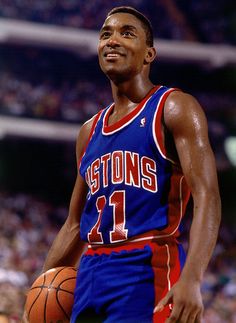Indulge me, if you will, with a short quote from The Book of Basketball:
(Isiah Thomas, NBA legend with the Detroit Pistons):
"The secret of basketball is that it’s not about basketball."
Here’s what Isiah Thomas meant: the guys who have the best numbers don’t always make the best team. There is more to winning than just the raw talent (although that plays a huge role).
What Isiah learned while following those Lakers and Celtics teams around: it wasn’t about basketball.Those teams were loaded with talented players, yes, but that’s not the only reason they won. They won because they liked each other, knew their roles, ignored statistics, and valued winning over everything else."
What does the 'secret' of winning basketball have to do with 'real' work and more specifically, enterprise software?
It is that more and more the 'secret' of making the right software solution purchase decision for your organization has less and less to do with the traditional measurements - system features, fit-gap analysis, and on-paper capability; and has more and more to do with the your mutual vision for the future, and the ability to execute on that shared vision by your potential software provider.

Solution capabilities, certainly at the enterprise level, are evolving and expanding faster than ever. With cloud-based software deployment, shorter enhancement and upgrade cycles, and the comparative ease for organizations who wish to adopt new these capabilities to be able to derive value from them - the actual list of capabilities or 'yes' responses to an RFP questionnaire matter less than ever before.
No, what matters today, and will likely matter even more in the next 5 years, is your ability to assess a potential software providers ability to 'see' around the corner, to articulate an idea of what will matter most for work, workplaces, and employees, and present more than just a list of software features, but rather expand upon a vision of how they (and you), will navigate the next few years of a working world that will almost certainly look much different than the one we live in today.
Think I am wrong about this? That 'features' matter less than vision?
Ok, think about this.
If say three years ago you went out to collect bids for a new enterprise-wide performance management system, you would have challenged your potential vendors to show you features like goal alignment, cascading goal assignment, proportional competency evaluation, the connection of performance rating scores to compensation plans, and more. You would have made final evaluations not only on these points, but also on how easily you could migrate your existing annual performance management process to this new system.
Fast forward to today, where we are entering into a new world of employee performance management.
Today, if you were again to collect bids for a new enterprise-wide performance management system you likely would be looking for features like real-time feedback, peer-to-peer recognition, the ability to do 'scoreless' reviews, and a connection of the performance tool not to your comp system, but to your enterprise collaboration tools.
The main features you would be chasing would be very, very different.
That's why the secret to buying software for the organization is that it isn't about the software - at least not as it exists at a fixed point in time.
If three years ago your chosen vendor for performance technology had the vision, and the ability to adapt to the new world of performance management, then you likely would not need to chase another new solution to meet your (and the workplace's) changing needs. But if they didn't? And they were really only or at least primarily concerned with checking 'yes' to every question on the RFP?
Then three years later you are left with a technology that can really only support yesterday's process.
Don't get caught up on features. At least don't make features the only thing you think about when evaluating technology.
Features are cheap. They are easily copied. And they fall out of fashion faster than you think.
Vision?
Much harder to come by. And much more valuable.
The secret to buying software is that it's not about the software.


 Steve
Steve


